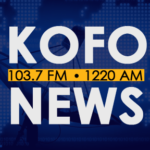Two surveys conducted by researchers at the University of Kansas Institute for Policy & Social Research, from January 2021 to January 2022, found that over one million Kansans live in a zip code where recorded average download speeds are below 100 mega bytes per second and 20 for uploads. Those speeds are considered an adequate baseline for people engaged in online education, streaming video, downloading and uploading large files and households with multiple users. This finding is especially relevant given the increase in remote work, online schooling and need for access to online services and resources during the COVID 19 pandemic.
The survey also found that 95 zip codes, representing over 87,000 Kansans, didn’t even have internet speed that qualify as having an adequate connection of 25 MBPS. The maps of speed tests across the state show that inadequate access to broadband internet service at home is not exclusively a rural issue, but affects households in urban and urban-adjacent areas as well.
